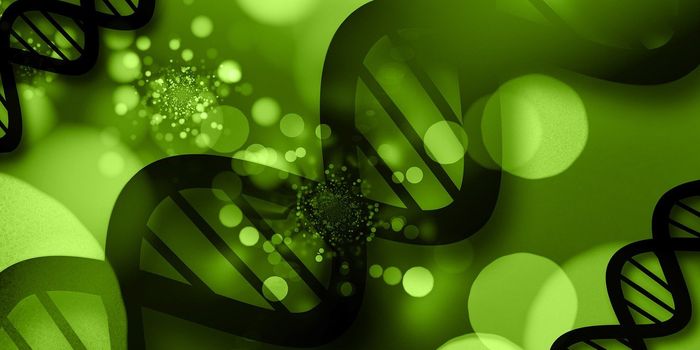Looking to the depths of the human genome to understand cancer
Have you ever heard of dark matter? No, I’m not talking about the dark matter of the universe – I mean the dark matter that lives within your genome. Scientists refer to the non-coding regions of our genomes as dark matter because it is so poorly understood, and yet it makes up an almost inconceivable large portion of our DNA. However, new research published in two studies in Nature recently could shed some light on the mysterious inner workings of dark matter. The studies detail a discovery of a mutation that occurs in the dark matter of the human genome that could be linked to several kinds of cancer, including brain, liver and blood cancer.
"Non-coding DNA, which makes up 98 percent of the genome, is notoriously difficult to study and is often overlooked since it does not code for proteins," says Dr. Lincoln Stein, co-lead of the studies and Head of Adaptive Oncology at the Ontario Institute for Cancer Research (OICR). "By carefully analyzing these regions, we have discovered a change in one letter of the DNA code that can drive multiple types of cancer. In turn, we've found a new cancer mechanism that we can target to tackle the disease."
The mutation that the researchers found is called the U1-snRNA mutation and has the capacity to change the genetic processes of RNA splicing and transcription. The researchers were able to identify this mutation in patients with specific subtypes of brain cancer, such as sonic hedgehog medulloblastoma, as well as chronic lymphocytic leukemia (CLL), and hepatocellular carcinoma. This finding provides hope because it gives medical practitioners another target for anticancer treatments.
"Our unexpected discovery uncovered an entirely new way to target these cancers that are tremendously difficult to treat and have high mortality rates," says co-lead Dr. Michael Taylor, Paediatric Neurosurgeon, Senior Scientist in Developmental and Stem Cell Biology and Garron Family Chair in Childhood Cancer Research at The Hospital for Sick Children (SickKids). "We've found that with one 'typo' in the DNA code, the resultant cancers have hundreds of mutant proteins that we might be able to target using currently available immunotherapies."
The two studies focused on brain cancer, and CLL and liver cancer, respectively. They were conducted using data from the OICR Pan-Cancer Analysis of Whole Genomes (PCAWG) project. PCAWG has analyzed over 2,800 cancer whole genomes from the International Cancer Genome Consortium (ICGC) in the effort to invest in research for cancer knowledge and treatments.
Sources: Science Daily, Nature (1) (2)









